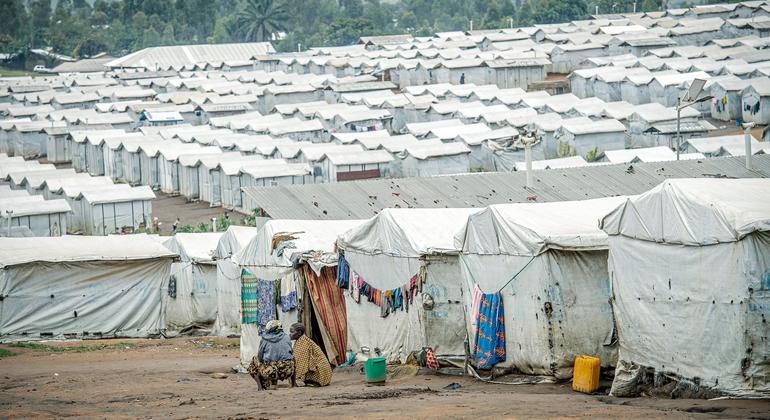According to the UN Children’s Fund, UNICEF, more than 290 schools have been damaged or destroyed in Ituri this year only, which brought the total number of children out of school in the province to more than 1.3 million.
Protection crisis
Between January and April 2025, an increase in violence has moved more than 100,000 people, half of them children. During this period, cases of kidnapping, mutilation, sexual violence and recruitment and the use of children by armed groups increased by 32% compared to the same period last year.
John Adbor, representative of UNICEF in the DRC, described the situation of “protection crisis”, declaring: “violence and conflicts breaking the right of children to learn – exercising them much more at risk of being recruited by armed, exploited and abused groups.”
“The needs are immense and our resources are not enough,” added Mr. Adbor, referring to the UNICEF emergency response in the region.
With more than 1.8 million children affected by the conflicts now leaving school through the DRC, UNICEF gives priority to mental health and psychosocial support through spaces suitable for children, the reintegration of children formerly associated with armed groups and the treatment of acute malnutrition.
Which approves two new vaccines to protect infants from RSV
The syncytial respiratory virus (RSV) is the main cause of serious pulmonary infections in young children worldwide, causing around 100,000 deaths each year in children under the age of five.
Alarming, 97% of these deaths occur in low and intermediate income countries.
Although the RSV can infect people of all ages, “this is particularly harmful to infants, especially those born prematurely,” said Kate O’Brien of the World Health Organization (WHO).
About half of all RSV deaths occur in babies under six months old.
New vaccination products
Friday, which published recommendations for two new vaccination tools: a maternal vaccine, administered to pregnant women during their third quarter to protect their newborns; And an injection of prolonged action antibodies for infants, which is starting to protect in the week following administration and lasts at least five months.
Given the global burden of severe RSV disease in infants, which recommends that all countries adopt the maternal vaccine or the injection of antibodies within the framework of their national vaccination strategies.
“These VRS vaccination products can transform the fight against severe RSV disease, considerably reduce hospitalizations and deaths, and finally save many infant lives in the world,” said Ms. O’Brien.
Say Hurricane Prédisions Composed Haiti Malheurs
UN humanitarian workers have taken an alarm on Haiti’s increased vulnerability to natural disasters, warning that the country’s limited capacity to respond could be severely tested during the 2025 hurricane season – planning to be much more intense than the average in Latin America and the Caribbean.
Waste burns on the Haiti coast.
Since June to November, the coming season has been a serious threat to the poor island nation, where the economic crisis, current violence linked to gangs and creeping insecurity have already moved more than a million people.
Risk travel sites
More than 200,000 people are currently living in travel sites across the country, many of which are located in areas subject to floods.
Missing shelters, drainage and appropriate sanitation, these camps “leave families very vulnerable to storms,” said UN spokesperson Stéphane Dujarric.
The United Nations Office for Humanitarian Affairs Coordination (OCHA) works with national authorities and humanitarian partners to prepare for the hurricanes season. Continuous efforts include contingency planning, high -risk areas mapping – in particular travel sites – and strengthening early alert systems.
However, humanitarian access remains limited and preparation is seriously hampered by the lack of pre-positioned supplies throughout the country.
This is a “direct consequence of under-funding,” said Dujarric, adding that “funding remains a major obstacle” to the UN emergency response in Haiti.




